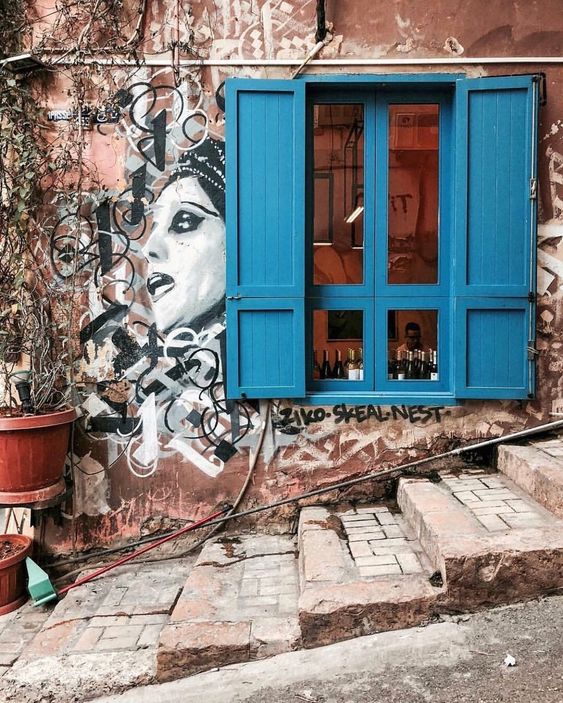In the ever-shifting landscape of the Middle East, travel and tourism occupy a unique position. As we bid farewell to 2023 and welcome 2024, the Middle East Travel and Tourism sector is navigating through a sea of political waves. This blog post aims to delve into the nuanced relationship between the Middle East’s political landscape and its impact on the region’s travel and tourism industry, and how it influences the global tourism scene.
Travel and Tourism Amidst Political Shifts and Conflicts
The Middle East, a melting pot of rich history and diverse cultures, has always been an enchanting tourist destination. From the awe-inspiring pyramids of Egypt to the majestic landscapes of Saudi Arabia, the bustling markets of Lebanon to the ancient ruins of Jordan, the region offers a tapestry of experiences like no other. However, the volatile political climate often casts a shadow over its potential as a tourism hotspot. The end of 2023 saw significant political shifts, profoundly affecting travel and tourism to and from the Middle East. Notably, the conflict in Gaza and the unfair treatment towards civilians have resulted in a sense of despair and resistance amongst the people. Yet, their remarkable resilience and strength exemplify the indomitable spirit of the region, which persists in hope for a better future despite the adversities faced.
In the midst of these shifts, countries like Lebanon continue to exemplify the resilience of the region. Despite facing economic challenges and political unrest, the nation’s vibrant culture and warm hospitality continue to draw in visitors, reaffirming the enduring appeal of the Middle East.
Seizing Opportunities Amidst Change
One of the most notable changes has been the increased efforts towards peace and stability in several Middle Eastern countries. These efforts have opened up new possibilities for tourism, unlocking regions previously off-limits to visitors. Despite the challenges, the Middle East’s tourism sector is treading cautiously yet optimistically into 2024, seizing these opportunities to rejuvenate and rebuild.
Geopolitics and Travel Advisories
The region’s relationship with the global community at large also shapes its tourism trends. As geopolitics evolve, so too do travel advisories and international perceptions. These play a crucial role in influencing the flow of tourists to and from the Middle East, particularly in areas affected by conflict.
New Partnerships and Collaborations: Embracing KSA’s New Vision
The political shifts at the end of 2023 have led to new partnerships and collaborations within the Middle East and with other countries. These alliances have the potential to reshape the region’s tourism scene, promoting cultural exchange and fostering understanding between different nations.
A standout example of this is the Kingdom of Saudi Arabia. The country has embarked on an ambitious journey of transformation with its Vision 2030 plan, aiming to diversify its economy and reduce its dependence on oil. Tourism is a significant part of this new vision, with KSA opening up to international tourists and investing heavily in tourism infrastructure.
From developing state-of-the-art entertainment cities to preserving historical sites, KSA’s efforts exemplify how a country can leverage its unique cultural heritage and natural beauty to attract tourists. This new vision has not only created opportunities for the global travel industry but also set the stage for increased cultural exchange and mutual understanding.
Despite the ongoing conflict in certain parts of the Middle East, these collaborations and visions, like KSA’s Vision 2030, embody a hope for peace and prosperity in the region. They serve as a testament to how the power of tourism can pave the way for a brighter, more connected future.
Tourism as a Tool for Change
While the political context undeniably shapes the tourism industry, travel and tourism themselves can influence politics. Tourism fosters intercultural dialogue, breaks down stereotypes, and can contribute to peace building. As we step into 2024, the role of tourism as a tool for diplomacy and political change in the Middle East, especially in conflict-ridden areas like Gaza, should not be underestimated.
A Tale of Resilience and Adaptation
In conclusion, as we transition from 2023 to 2024, the Middle East is navigating a new path in its travel and tourism sector, shaped by the ongoing political shifts and conflicts. Despite the challenges, the region’s inherent allure, combined with the resilience of its people, promises a hopeful future for Middle East travel and tourism amidst the sands of change. The story of Middle East travel and tourism is one of resilience and adaptation, a narrative that will continue to evolve in response to the political landscape.
Our Prayer for Gaza
As we conclude this exploration of travel and tourism in the Middle East amidst political shifts and conflicts, let us take a moment to send a special prayer for the people of Gaza. May they find strength in their resilience, peace in their hearts, and hope amidst the hardships they face daily.
May the global community stand together in solidarity with them, advocating for justice, dignity, and the essential freedoms that every human being deserves. And may the dawn of 2024 bring about a new era of peace, healing, and prosperity for Gaza and the entire Middle East.
May the spirit of unity and shared humanity guide us all towards a world where travel serves not just as a means of tourism, but a bridge of understanding, compassion, and peace among nations. Here’s to a hopeful and peaceful future for all.






Leave a Reply